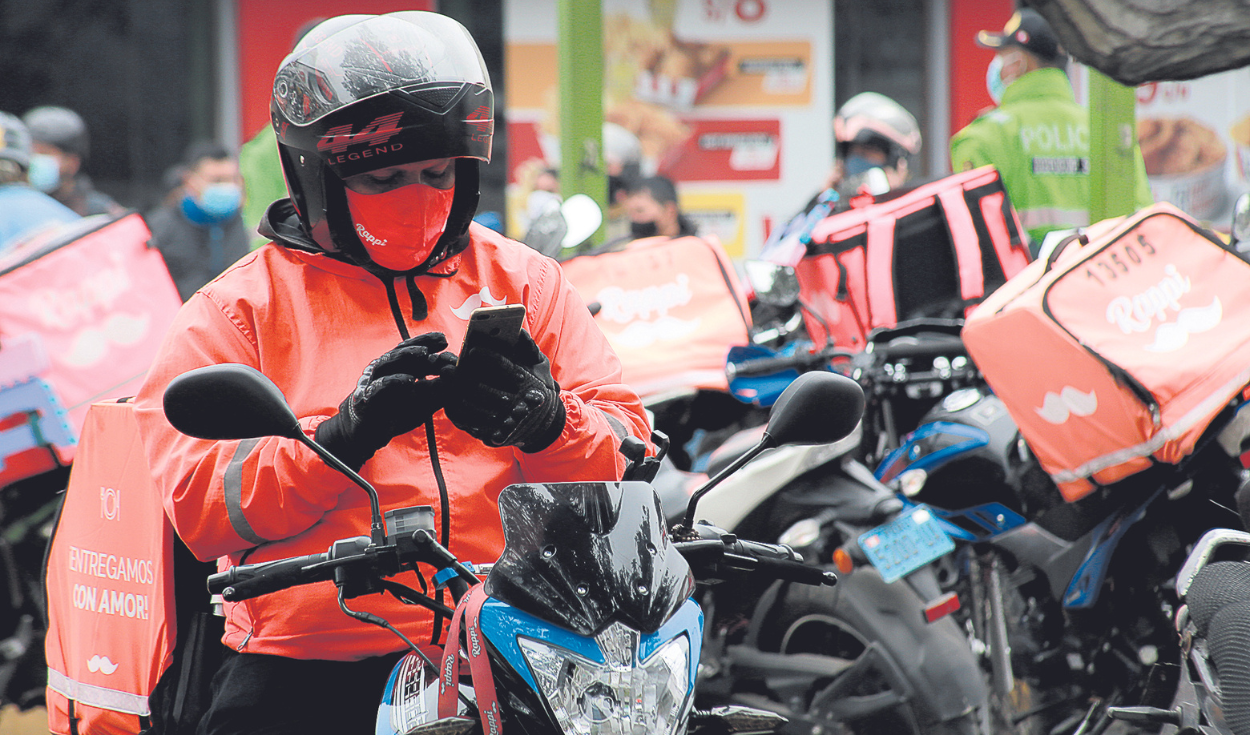
One of the Government’s great debts is the regulation of the delivery service through mobile applications. The Republic warned months ago that 9 out of 10 drivers feel unprotected because they do not know what their connection is with these companies.
A Fairwork report in Peru provides more insights into a little-explored problem: 145,000 people, including motorists and drivers, receive a salary for below the minimum (S/1,025) despite working more than 50 hours per week.
Abandonment was normalized
The study makes visible the conditions under which the drivers of the most in-demand delivery and taxi apps operate: Uber, Cabify, Didi, InDrive, Didi Food, Rappi, PedidosYa, InDrive Entregas, Urbaner and Chazki.
None of these companies comply with the five pillars that, for Fairworkmust govern this niche: salaries, conditions, contracts, management and fair representation.
Only the transnational Cabify and the Peruvian Urbaner guarantee fair contracts to their motorists, since they give a week’s notice of the changes they will make to their terms and conditions with “easy-to-understand language”; in addition to detailing the management and processing of data to identify its personnel.
However, delivery apps are still lacking and leave their staff outside the social and labor protection system; Therefore, it is urgent to adequately regulate the sector.
Alejandra Dinegro, principal researcher of the Fairwork project in Peru, remembers that there is no official data on the universe of delivery people and drivers in applications, and The 145,000 mentioned correspond only to metropolitan Lima.
“There is a feeling of orphanhood. Platforms must demonstrate protocols to help workers. Fair conditions are required, such as the commitment (of the company) to mitigate risks or provide them with training or insurance,” he commented for La República.
Dinegro recalled that a motorized vehicle earns on average S/0.70 per kilometer and S/1.20 per order, and they are at the mercy of the companies’ criteria, which can continue reducing the prices. rates unilaterally.
Its regulation is not a priority
Paul Véliz, secretary of Organization and Defense of the first National Union of Digital Platform Workers of Peru (Sintrapladi), considers it frustrating not to have a space to demand that rights be respected—or established. “We just have to keep working and turn the page,” he told Fairwork during the report presentation.
The also motorized driver assures that his motto is not to keep delivery companies away from the Peruvian market, but rather to be fair in their treatment.
The Labor Commission In the previous legislature, it approved a bill that establishes benefits such as CTS, vacations, pensions and insurance for the distributors of these apps, in addition to establishing quotas for dependent and independent groups. Dinegro pointed out that a second opinion from the Economy Commissionbut the current Labor one can advance despite the silence, although “right now the priority is other issues,” he lamented.
Union was created without support from Congress
A few days ago, the Ministry of Labor and Employment Promotion provided permission for the registration of the National Union of Digital Platform Workers of Peru (Sintrapladi Perú). There are almost 7,000 people who make up this group.
Harvey Buitrago, general secretary of this front, acknowledged that it was not an easy path, and now they are seeking that the companies respond to their request to restore the rates, which were previously between S/1.60 and S/1.50. “Congress was not required for the union despite the fact that doors were knocked on”Dinegro complemented.
The word
Alejandra Dinegro, principal investigator of Fairwork in Peru
“Many of us see these young people, but no one knows where they work and who their bosses are (…) There is a feeling of orphanhood. Fair conditions are required, such as a commitment to mitigate risks.”
Figures
- S/0.70 per km and S/1.20 per delivery deliverers earn.
- 90% of motorized workers do not know the nature of their employment relationship.
Source: Larepublica
Alia is a professional author and journalist, working at 247 news agency. She writes on various topics from economy news to general interest pieces, providing readers with relevant and informative content. With years of experience, she brings a unique perspective and in-depth analysis to her work.











